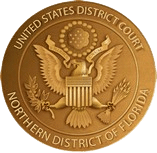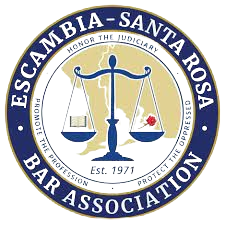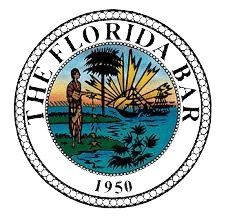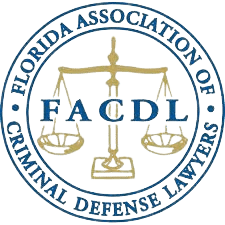Child Abuse & Neglect Laws in Florida
There are several crimes that may be used to charge an individual with child abuse in Florida. Child abuse is considered a form of domestic violence. These offenses in child abuse cases are felonies in Florida.
What Is Child Abuse and Neglect?
The definition of child abuse is the intentional infliction of physical or mental injury to a minor. Child neglect is a form of abuse that includes failing to provide necessary care, supervision, or services for a minor’s physical or mental welfare.
Under § 827.03, Fla. Stat., you may also receive child abuse charges if you encourage someone else to inflict physical or mental injury upon a minor. For example, if you tell your spouse to slap and beat your child beyond a normal spanking to the extent that the child suffers severe physical injuries, then both you and your spouse can be charged with child abuse.
Aggravated Child Abuse Charges
Another child abuse charge in Florida is aggravated child abuse. This occurs when a person does one of the following:
- Commits aggravated battery on a child
- Willfully tortures, maliciously punishes, or willfully and unlawfully cages a child
- Knowingly or willfully abuses a child and causes great bodily harm, permanent disability, or permanent disfigurement
Child Endangerment Charges
Child endangerment charges may be assessed if a caregiver has failed to provide a child with adequate care. That may include nutrition and food, proper clothing, safe housing, adequate supervision, or necessary medical services.
Penalties for Child Abuse in Florida
Since child abuse charges are felonies in Florida, the penalties can be severe. You may face significant time behind bars, fines, and other collateral consequences.
Here are the general penalties for Florida child abuse charges:
- Child abuse is a third-degree felony punishable by up to five years in prison and a fine of up to $5,000.
- Aggravated child abuse is a first-degree felony punishable by up to 30 years in prison and a fine of up to $10,000.
- Child negligence without great bodily harm is a third-degree felony punishable by up to five years in prison and a fine of up to $5,000.
- Child negligence with great bodily harm is a second-degree felony punishable by up to 15 years in prison and a fine of up to $10,000.
Collateral Consequences in Child Abuse Cases
There are additional consequences you may face in child abuse and neglect cases, including:
- Being subjected to a probing investigation
- Separation from your family
- Losing custody of your children
- Requirement to complete parenting classes
- Tarnished community reputation
- Ostracization from family members
You will have a permanent criminal record. Child abuse and neglect cannot be sealed in Florida, so your opportunities to get jobs, housing, education, and more will also be impacted.
How a Child Neglect and Abuse Lawyer Can Help Your Case
While child abuse laws have a purpose, they are often used against people who did nothing wrong. It’s important to remember that you are innocent until proven guilty. A child neglect lawyer can help you develop a strong defense against your charges.
Defense Strategies Against Child Abuse Charges
There are many defenses that can be used to dismiss or mitigate your child abuse charges. In addition to developing evidence that supports your case, some of the defense strategies we use include:
- Proving there were false accusations
- Showing there is insufficient evidence of abuse
- Emphasizing the parental right to discipline
- Explaining the harm was accidental
- Showing there was no intent to cause injury
The best legal strategies should be developed by reviewing the specific facts in your case and creating a custom plan to move forward through the legal process.
Getting Your Charges Dismissed
There are several ways to get child abuse and neglect charges dismissed. Some of the most common include:
- Lack of Probable Cause: Police must have probable cause to believe that you committed a crime to arrest you. If your attorney can show that the police did not have probable cause, your charges may be dismissed.
- Lack of Evidence: The prosecution must prove every element of a crime beyond a reasonable doubt in order to convict you. If your attorney can show that the prosecution does not have enough evidence to prove its case, your charges may be dismissed.
- Illegal Search and Seizure: If the police searched you or your property without a warrant, or if they obtained a warrant under false pretenses, any evidence they seized may be inadmissible in court. If your attorney can show that the prosecution is relying on inadmissible evidence, your charges may be dismissed.
- Prosecutorial Discretion: In some cases, the prosecutor may decide to drop charges for reasons unrelated to the strength of the case. For example, the prosecutor may decide that the charges are not in the public interest, or that you are a good person who made a mistake.
There is no guarantee that your criminal charges will be dismissed. However, by working with an experienced child abuse attorney, you can increase your chances of a successful outcome.
Don’t Let a Misunderstanding or Mistake Ruin Your Life – Call Today
Whether or not you have experience with the criminal justice system, a child abuse charge can be intimidating. We all rely on our families to support us. If you are being accused of hurting your own children, or committing another domestic violence offense, you may be worried you will lose your family. It’s important to work with a skilled child abuse and neglect lawyer at Mitkevicius Law, PLLC who can protect your rights as a member of society and a parent.
Call lead attorney Josef Mitkevicius today at 850-361-2142 to schedule your free consultation. He is ready to help.





